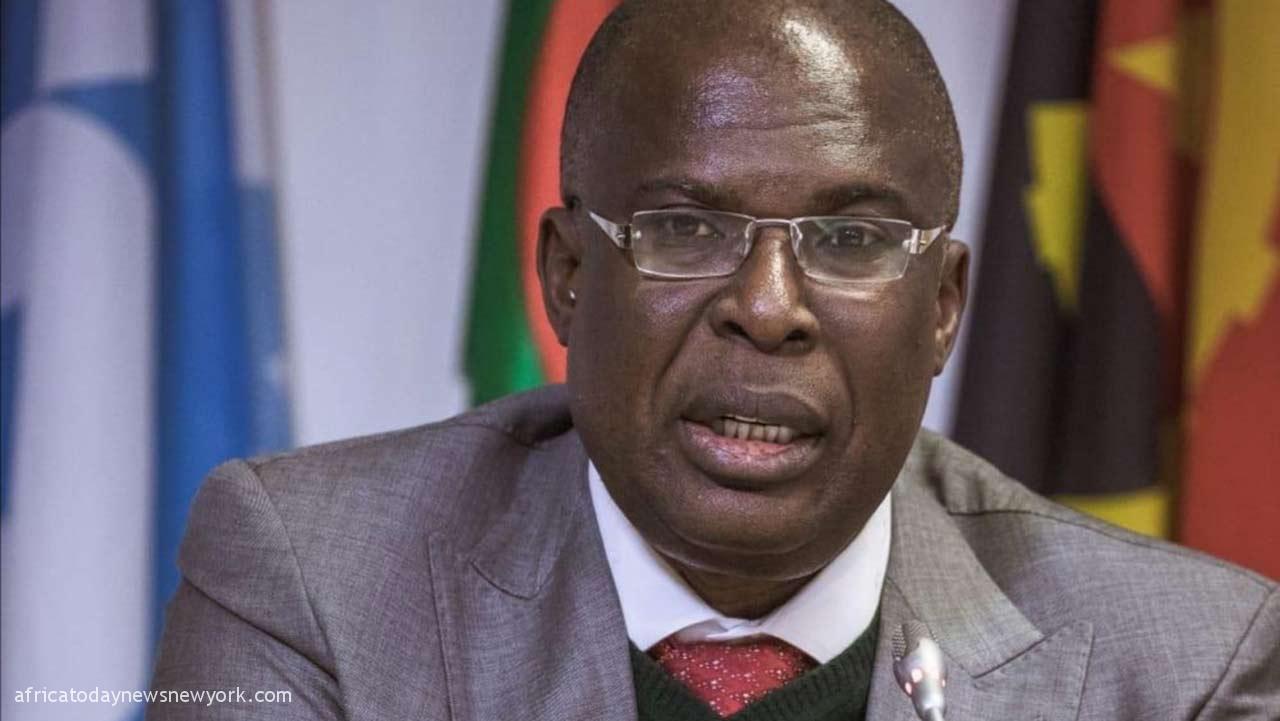The Federal Government of Nigeria has opened it up about its strategy which would be following an energy transition pathway that combines technology, investment, business strategies and policy.
The government says this will enable Nigeria to transition from its current energy system to a low-carbon energy system with natural gas playing a pivotal role over the next generation, roughly between now and 2060.
Chief Timipre Sylva, Minister of State for Petroleum Resources, made the assertion on Tuesday at the virtual Society of Petroleum Engineers (SPE) Lagos Annual Technical Symposium and Exhibition.
Read Also: Why ASUU, FG Are Yet To Conclude Agreements – Keyamo
The symposium had as its theme: ‘‘Energy Transition In Africa: A Strategic Pathway To Net Zero.”
Sylva said natural gas was a key resource for a just energy transition and had all the credentials to support Nigeria and indeed Africa meet up with her commitment to the UN 17 Sustainable Development Goals (SDGs).
He said as a major source of wealth and energy in Africa, the development of oil and gas resources proves critical for the continent’s economic growth and revenue expansion.
According to him, fossil fuels will remain relevant in the energy mix despite ongoing campaigns and global energy transition.
He said: “First off, Africa and the world need oil (and gas for that matter). The world needs oil and gas because it is what the world relies on for its most basic needs. And that will not change overnight.
”Therefore, African governments and leaders should continue to invest in oil and gas, even as we work to help speed progress to a lower-carbon future.
“The International Energy Agency, for its part, has reversed its calls for lower oil and gas spending.
“In just a few months, the industry think tank group has changed its tune and is now urging oil and gas companies to increase production.
“Multiple pathways to the energy transition should and must exist in order to ensure that no country is left behind in the process of achieving net-zero by 2060.”
Sylva said as a continent, Africa needs to be intentional and recognise the need to develop hydrocarbon resources in environmentally and socially responsible ways.
“And as alluded to by the African Union, we need to be realistic in choosing the energy transition pathways which address our unique requirements and circumstances.
“We need to enhance policy, legislation and implementation approaches across national, regional, and continental levels, to enable a favorable environment for development.
“We need to develop bankable projects to scale up access to funding and investment.
“We need to adopt a mix of energy solutions to address the needs of each country including solutions to high tariffs and accessibility to sustainable energy options.
“We need to promote energy efficiency which is necessary for energy transition and focus on building energy infrastructure and strengthening transmission corridors,” the minister said.
He lauded the Memorandum of Understanding signed on Monday between the African Export-Import Bank (Afreximbank) and the African Petroleum Producers Organisation (APPO) for the creation of a multi-billion-dollar African Energy Bank.

